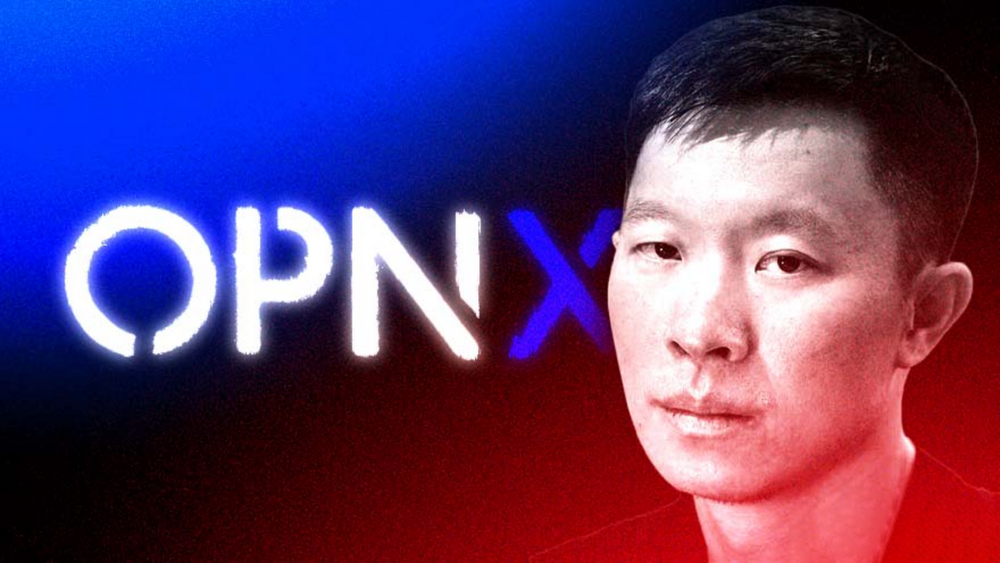Legal analysis of smart contracts: What is the difference between smart contracts and traditional contracts?
Source: Digital Asset Research Institute
Editor's Note: The original title was "Fan Xiaojuan | Legal Analysis of Smart Contracts"
Smart contracts are different from traditional legal contracts.
On October 20, 2019, the "Digital Economy, Blockchain" was co-sponsored by the Digital Asset Research Institute, Wanshang Tianqin Law Firm, Zhonglun Law Firm, and China University of Political Science and Law Alumni Reading Club. "Symposium with France" was held in Shanghai Jinmao Building.
- US SEC proposal proposes to expand the scope of "qualified investors"
- Inventory: Who will predict the price of Bitcoin in 2019?
- Global Blockchain Financing Track Top 20: 1,543 venture capital investments with a total funding of more than 79.2 billion yuan
Fan Xiaojuan believes that smart contracts can be regarded as a contract performance tool or as a supplement to contract terms. In terms of legal responsibility, the smart contract itself is a piece of computer code and cannot bear responsibility itself. Depending on the actual situation, it should be borne by the technical service provider or infrastructure provider. Smart contracts have certain limitations and there are many restricted scenarios, which cannot be applied to physical delivery and labor service provision. However, the automatic execution characteristics of smart contracts are very suitable for financial products, which can improve a lot of efficiency and increase the liquidity of financial products. China should introduce a regulatory sandbox system. In the sandbox, experiments can be conducted on innovation projects, and success can come out, and orderly withdrawal can be achieved without success. This not only protects and encourages innovation, but also prevents major losses caused by uncontrolled innovation.
The following is the speech record:
Thank you all for sharing the analysis of legal issues of smart contracts with you today. In fact, in 1994 before the advent of Bitcoin, Nick Szabo proposed the concept of smart contracts. Nick Szabo was a computer scientist, a cryptographer and a former professor of law at the University of Washington. Because the technical conditions were not mature enough at that time, smart contracts were not widely used. With the proposal of Bitcoin, the concept of blockchain is widely understood by everyone. With the advent of Ethereum, smart contracts have a landing environment. Bitcoin is relatively limited in usage, just a transfer of coins. The smart contracts used in Bitcoin are relatively simple and not smart enough. After the emergence of Ethereum, people can create some corresponding code to implement transactions for each transaction demand, so a certain degree of intelligent processing is truly realized. At this time, smart contracts began to be widely used. The widespread application of smart contracts poses some challenges to existing laws and some systems, so we will discuss together here about the nature, legal nature, application of smart contracts, and how to improve the system from the perspective of contract law. Thinking.
The first part is the essence of smart contracts.
First, the definition of smart contracts. Smart contracts rely on digital forms to define commitments, including that contract participants can define smart contracts on them. Smart contract components need to have a contract body, and the main body can automatically lock and unlock the relevant goods and services in the smart contract. Second, the smart contract involves all the operating procedures of the clauses, which can only be executed if they are jointly approved and signed by the participants. Third, to form an agreement, digital signatures are required to be implemented electronically, so participants need to be authenticated by their private keys before smart contracts can be launched. Fourth, smart contracts are digital, built on a decentralized blockchain platform, distributed across various nodes, and a piece of code waiting to be executed. The above is the definition for smart contracts.
The United States Uniform Law Commission (“ULC”) defined smart contracts in 2019. ULC believes that smart contracts are computer code that changes state within the blockchain when preset conditions are met. According to this definition, we can understand that according to the previous definition, we believe that smart contracts are formed by combining traditional contract terms, a set of computer codes, and a set of codes after programming. The codes can be combined with different codes to form smart contracts. The code is deployed on the blockchain. After the parties to the transaction sign it, it automatically runs on the blockchain. When the conditions are met in this way, the smart contract can automatically capture on-chain or off-chain information. The preset conditions are met, and the computer code will perform some execution accordingly. This execution is automatic, it is bound to happen, and it is irreversible. It runs according to the smart contract settings, so once the computer code is compiled on the chain, the objective situation will not change accordingly.
Based on these characteristics, we tend to think of a smart contract as a computer code.
The legal nature of smart contracts. According to the Chinese contract law, traditional contracts have the requirements for establishment and effectiveness. The establishment requirements include the agreement made by two or more persons; the entry into force requirements include the parties' ability to act, the intention to be truthful, the content of the contract not to violate relevant laws, and social and public interests. This is an analysis of the elements of contract law. What about smart contracts? It can be seen as the communication between the parties concerned, the determination of the terms and details of the relevant transaction and the contract implementation process, the terms are given to the programmer, and the programmer is transformed into computer code by programming. After the computer code is programmed, it is finally placed on the blockchain and signed by all parties through electronic signatures. When the preset conditions are met, the smart contract is automatically executed, and the rights of contract disposition will be transferred on the blockchain. From the analysis, it can be seen that the traditional contract law emphasizes that the contract definition is a consensus, the parties agree, and the purpose of entering into a contract is also. For smart contracts, the focus is on automatic execution. Can smart contracts be executed automatically? Can they capture relevant information to verify whether the conditions are met and the automatic execution produces the desired transaction execution result? Therefore, it is emphasized that it is an automatic execution process. If we look at it this way, we will tell whether the code is our legal rule. We tend to think that as a computer code smart contract, at least it cannot be considered a legal contract. In more cases, smart contracts can be regarded as a contract performance tool or as a supplement to the terms of a contract.
What about its legal status? The blockchain has the characteristics of decentralization, immutability, and the characteristics of the consensus mechanism, which creates a trusted environment for smart contract execution. This is why smart contracts have been widely used since the development of the blockchain. Under a trusted environment, smart contracts are considered as a contract performance tool and supplementary terms. We can think of smart contracts as the role of execution agent. The parties to the contract are users of smart contracts. Smart contracts are independent third-party execution agents. They can be regarded as independent third parties. They are a bit like the traditional escrow arrangements involved in traditional transactions. The preset conditions are met, the supervisory agent judges whether the conditions are met, and the execution is performed automatically by a person. We believe that as a smart contract writer, a technical person writing a smart contract can charge a certain technical service fee. Through the smart contract, a regional blockchain can also charge a certain infrastructure fee. This fee is realized regardless of how the currency is implemented or how it works. In this way, we believe that if you are a party independent of the parties to the contract, you can have a cost arrangement.
Legal status of smart contracts. We think that there is a problem with smart contract technology, and automatic operation fails or improperly causes losses to contract parties. How can we bear legal responsibility? The smart contract itself is a computer code, and the code itself is neutral and cannot be held responsible. If there are problems in the implementation process, we think that because the independent third party does not charge the corresponding fees whether it is an infrastructure provider or a smart contract writer, as a legal status, we believe that it is actually a certain time to bear certain legal liabilities. Including some liability for compensation, how to assume responsibility? The computer code is neutral. We are responsible for the technical smart contract compiler programmer or the provider of the infrastructure chain. If they want him to bear responsibility, where is the boundary of responsibility, is he responsible for intentional or gross negligence, or Others, this is what we are going to consider. Of course, on this basis, we also need to consider further. If they are required to compile the smart contract party or provide the infrastructure chain party, if they bear the corresponding responsibility, who will bear the burden of proof, should it be based on who advocates, who should prove or compile it? The smart contract party itself has the ability to prove itself innocently. This is based on the nature of the smart contract we analyzed earlier, and caused some thinking about legal liability.

Image source: Internet
The third part is the application of law. Many of you here are big technical people. Everyone is familiar with smart contract application scenarios. In our traditional contract relationship, one party breached the contract and the other party sought enforcement from the court or arbitration agency to obtain relief. In the smart contract scenario, we are automatically set according to preset conditions. Let us see that the most widely used field at present is digital asset trading. This field is also the easiest to implement automatic execution through smart contracts. Especially, Bitcoin has a relatively single transaction. Contracts easier. If it involves other changes registration, some intangible assets transfer registration, intellectual property rights or equity transfer registration, in fact, it can also be achieved through smart contracts, there are some conditions to achieve. Including bank loan defaults, we bought a car with a bank loan. After the default, is it possible to set it automatically? Once the default car occurs, it will be locked and cannot be driven away, so that the cost of default can also be controlled. This is an imagination for some future applications.
Smart contracts are not universal, and have certain limitations. Its computer code nature, so when it comes to physical delivery and provision of labor, it is not automatic. Under the current legal framework, for houses, machinery, equipment, vehicles, and vessels, property ownership needs to be transferred through the registration authority, and the physical part that is effective after being registered by the registration authority cannot be legally transferred by performing a transfer registration on the smart contract. Even if the registration can be implemented on the blockchain in the future, it can be recognized by law, but in this case the physical object itself has a delivery problem, so smart contracts cannot fully implement the entire transaction automatic execution on this type of transaction. Another example is to provide labor services. Through smart contracts, some other settings and cooperation are required to provide labor services. For example, is it possible to set a labor service review system in the labor contract, and through some smart contracts to set up and implement reward and punishment arrangements, urge labor providers to perform labor contracts. However, labor contracts, even if there is a dispute over breach of contract in the labor contract in traditional contract law, it is difficult to actually perform the contract. Therefore, smart contracts cannot fully achieve the legal effects we want.
What legislation do we have for smart contracts? The following introduces the US legislation on smart contracts. ULC is an organization composed of judges and law professors. The US legal system has the concept of federal law and state law. They form an organization to provide guidance for the application of laws in various states. Many states use the draft laws provided by ULC. The Electronic Transactions Act, abbreviated as UETA, was issued in 1999 for reference by states. In 2000, the US federal level introduced the "Signature on Electronic Signatures in Global and Domestic Business," abbreviated as ESIGN, and became the federal level law. In January 2019, ULC issued guidelines on the application of smart contract laws. It is clear that deterministic smart contracts are computer codes. It is also clear that UETA and ESIGN are applicable to electronic transactions and electronic contracts that use smart contracts. This makes smart contracts complete and electronic. The signature is guaranteed by some laws. It was just mentioned as a guideline, and states are likely to apply it.
China's current legal framework for electronic transactions. The Electronic Signature Law was promulgated in 2004. It was amended twice in 2015 and 2019. In 2005, the General Office of the State Council issued "Several Opinions of the General Office of the State Council on Accelerating the Development of Electronic Commerce", issued by the Ministry of Commerce in 2011. "Guiding Opinions on the Development of Electronic Commerce during the" Twelfth Five-Year Plan "of the Ministry of Commerce. In January 2014, the State Administration of Supervision and Administration of the People's Republic of China issued the "Administrative Measures for Online Transaction", and in August 2018, the Standing Committee of the National People's Congress issued the "E-Commerce Law", which is the legal framework for electronic transactions in China. Under such a legal framework, from some analysis just now including the specificity of smart contracts, we are thinking about how China can make some regulatory assumptions about smart contract contract law, such as considering whether it is possible to introduce corresponding legislation and judicial interpretations to clarify the application of smart contract laws? Is it possible that for some registration requirements, the effective transfer of property rights needs to be registered, and the registration business can be gradually transferred to the chain? For example, certification of some chains, so that digital assets can be registered through the chain, realizing the transfer of property, so that the contract can take effect. If there is a dispute or litigation, a valid legal contract can be enforced. This is a direction we hope to consider in the future.
We are thinking about it, because the automatic execution feature of smart contracts is very suitable for the design of corresponding financial products. Financial products are relatively standardized. The level of automatic implementation can improve a lot of efficiency. It can indeed increase the liquidity of financial products. Can such a business be launched? The sandbox system must be supervised. In the sandbox, experiments can be carried out on innovation projects. Success can come out, and orderly withdrawal can be achieved without success. This not only protects and encourages innovation, but also prevents major losses caused by uncontrolled innovation.
We now look into the future. In most cases, smart contracts are only traditional contract execution tools and supplements. If the digital world in the future is to fully digitize assets, our transactions will also be replaced by smart contracts in large numbers. At that time, smart contracts are not a supplement to traditional tools. Conversely, traditional contracts are a supplement to smart contracts. For legal personnel, programming may become our compulsory course like English, thank you.
We will continue to update Blocking; if you have any questions or suggestions, please contact us!
Was this article helpful?
93 out of 132 found this helpful
Related articles
- Satoshi Nakamoto's theory of the crypto market after the bulls' collapse?
- Perspectives | Five conjectures for the blockchain industry in 2020
- Blockchain can't save traffic NetEase circle and other products failure revelation
- Comment: Why did Satoshi Nakamoto give up being the richest man in the world?
- Looking for "new rich mines" in the automotive industry: blockchain may become a breakthrough
- Opinion: 5 predictions for DeFi in 2020
- Case study | How government governance applies blockchain technology






